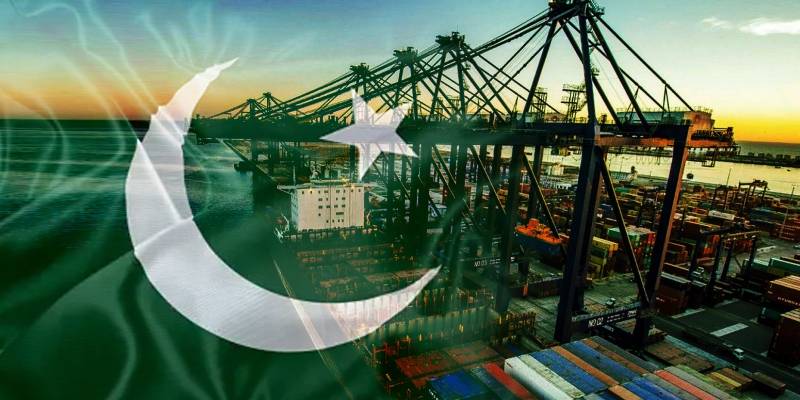
The absence of a robust dispute resolution mechanism in Pakistan has long been a thorn in the side of foreign investors. This issue has significant ramifications for the country as it seeks to attract substantial investment from Gulf States. Recent negotiations for a Bilateral Investment Treaty (BIT) with Saudi Arabia and the integration of this agreement into a broader Free Trade Agreement (FTA) with the Gulf Cooperation Council (GCC) highlight the urgency of addressing this crucial challenge.
Pakistan's eagerness to secure substantial investments from the Gulf States is evident, with the government targeting around $25 billion out of a total goal of $60 to $70 billion under the Special Investment Facilitation Council (SIFC). However, to achieve this, Pakistan must address the impediments stemming from its domestic dispute resolution mechanisms.
The initiation of negotiations for the BIT with Saudi Arabia is a pivotal step in this direction. One of the key sticking points in these negotiations is Saudi Arabia's insistence on international arbitration as the preferred mechanism for resolving investment disputes. The new standard BIT template under discussion emphasizes the Convention on the Settlement of Investment Disputes (ICSID Convention) in Washington as the arbitration mechanism. This approach represents a fundamental departure from Pakistan's previous inclination toward local arbitration.
The deficiencies in Pakistan's domestic dispute resolution infrastructure are stark. This lack of transparency and efficiency in the local resolution mechanisms has not gone unnoticed by foreign investors.
The significance of this shift becomes evident given the impact of not having a robust dispute resolution mechanism. In recent history, Pakistan's decision to opt for local arbitration instead of international arbitration led to severe financial repercussions. The World Bank's International Centre for Settlement of Investment Disputes (ICSID) imposed a staggering $6 billion penalty on Pakistan for its decision to deny a mining lease for the Reko Diq project to Australia's Tethyan Copper Company.
The deficiencies in Pakistan's domestic dispute resolution infrastructure are stark. The country's law ministry has struggled to establish a fully operational ombudsman office, with the process still pending cabinet approvals. This lack of transparency and efficiency in the local resolution mechanisms has not gone unnoticed by foreign investors.
The absence of a reliable local mechanism for dispute resolution has left foreign investors, particularly those from Gulf nations like Saudi Arabia, seeking concrete guarantees and international arbitration options. The insufficiencies in the local system underscore the importance of having internationally recognized and trusted frameworks in place. Saudi Arabia, in response to these concerns, has already shared its draft template for a Bilateral Investment Treaty (BIT) that places strong emphasis on international arbitration, signaling its expectations regarding investment protection.
The key question that arises from this discussion is whether Pakistan is ready to embrace Gulf investors and unlock the substantial investment potential that lies in its engagement with the Gulf states. The answer is not straightforward, but it involves recognizing the importance of creating an investor-friendly environment.
The eagerness of Gulf investors, particularly Saudi Arabia, for international arbitration is emblematic of the evolving global investment landscape. Foreign investors, when exploring new markets, are increasingly seeking assurances and guarantees that their investments will be protected and disputes will be resolved impartially. The inclination toward international arbitration provides that much-needed assurance.
The critical question of whether Pakistan is ready to embrace Gulf investors hinges on its ability to address the absence of a robust dispute resolution mechanism. The ongoing negotiations for the BIT with Saudi Arabia emphasize the urgency of adopting international arbitration, reflecting a broader commitment to creating an investor-friendly environment.
It is essential to recognize that the government's willingness to consider international arbitration indicates a broader commitment to creating an investor-friendly environment. This environment is one where foreign investors can have confidence in the fairness and impartiality of the dispute resolution mechanism. The willingness to adapt and adjust policy in response to evolving international standards signals Pakistan's readiness to embrace Gulf investors.
Furthermore, Pakistan's proactive approach to negotiating the BIT with Saudi Arabia has far-reaching implications. This treaty is not just an isolated agreement but a crucial component of a broader FTA with the GCC, which includes not only Saudi Arabia, but also Qatar. This integration underscores Pakistan's commitment to fostering trade and investment relationships within the Gulf region.
As Pakistan pivots toward the GCC, it also places negotiations for a Comprehensive Economic Partnership Agreement (CEPA) with the United Arab Emirates (UAE) on the back burner. The slower pace of these negotiations suggests that Pakistan may not be entirely prepared to accommodate all Gulf States' investment demands.
In conclusion, the critical question of whether Pakistan is ready to embrace Gulf investors hinges on its ability to address the absence of a robust dispute resolution mechanism. The ongoing negotiations for the BIT with Saudi Arabia emphasize the urgency of adopting international arbitration, reflecting a broader commitment to creating an investor-friendly environment. This shift can unlock the substantial investment potential that lies in Pakistan's engagement with the Gulf States.
Resolving the dispute resolution issue is not just about attracting Gulf investment; it's about fostering a transparent and dependable investment environment that can benefit Pakistan's economic growth and development. Ultimately, the journey to unlock Gulf investment potential for Pakistan is one that can bring mutual benefits and deeper economic cooperation between Pakistan and the Gulf states.

